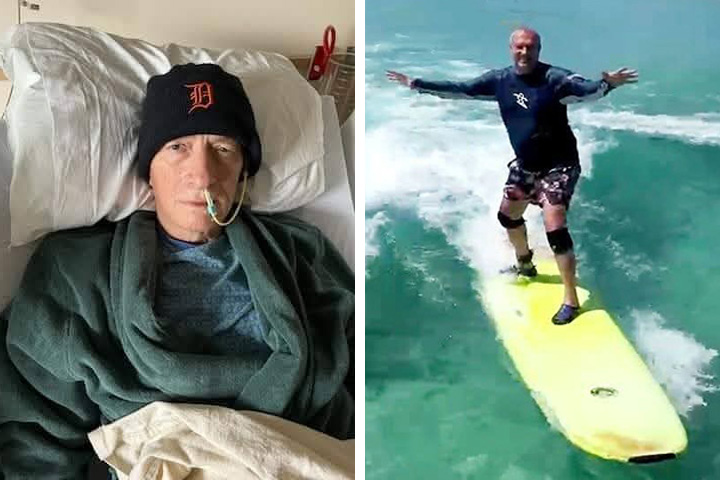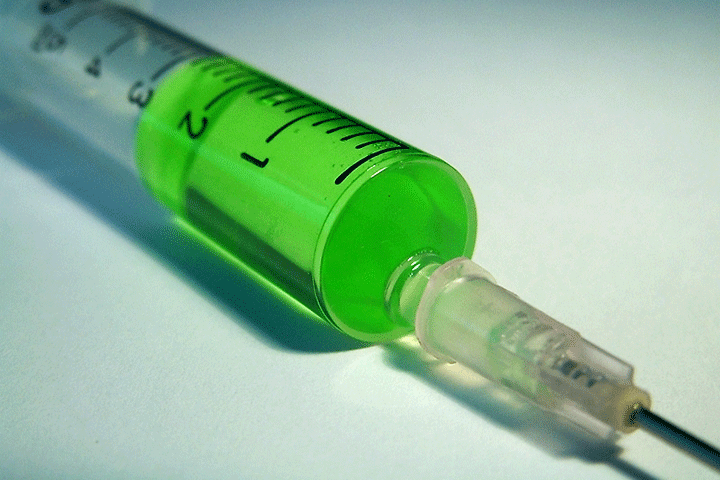Platinum-Based Therapy Can Significantly Improve Survival for Some Pancreatic Cancer Patients

A subset of pancreatic cancer patients with advanced disease got some much-needed good news.
According to a February 2019 study published in the Journal of Clinical Oncology, Precision Oncology, those patients with advanced disease who have a homologous recombination, DNA damage response and repair (HR-DDR) mutation may significantly benefit from treatment with platinum agents.
Very simply, HR-DDR mutations lead to hiccups in the elaborate process of DNA replication and are not that unusual among pancreas cancer patients, explains lead author Michael Pishvaian, M.D., Ph.D., Associate Professor, GI Medical Oncology, The University of Texas MD Anderson Cancer Center, Houston. “Our DNA gets replicated every time a cell divides and that replication can be prone to error—but these errors are normally quickly corrected by the HR-DDR process,” Pishvaian says. “However, HR-DDR mutations can occur in pancreatic tumors, weakening the ability of the cancer cell to repair DNA damage. Thus, those mutations also give us an actionable target in terms of treatment.” About 17 percent of pancreatic cancer patient tumors harbor some form of HR-DDR mutation.
Where Platinum-Based Therapy Can Be Effective
The study analyzed data from 822 participants in the Know Your Tumor® program, a collaborative effort between the Pancreatic Cancer Action Network and Perthera, a precision medicine company.
In the study, Pishvaian and colleagues grouped patients into several subsets, including:
- Resected (surgical) patients compared to those with advanced disease.
- Patients with HR-DDR mutations compared to those who were DNA damage response-proficient (meaning they did not have any mutations).
- Those who received platinum-based treatment at any point in time compared to those who did not receive any platinum-based treatment.
“There have been a lot of studies showing that patients with HR-DDR mutations do better in terms of living longer if they receive platinum therapy and PARP inhibitors,” says Pishvaian. “But we wanted to answer some questions about the biology of HR-DDR mutations. Are they a marker for a better outcome like improved survival or a slower growth rate?”
Here’s what researchers found:
Patients whose tumors harbor an HR-DDR mutation do not have a more favorable outcome compared to patients without such a mutation.
In resected patients who did not receive platinum therapy, the median overall survival was 1.8 years in the mutated patients. Among patients without mutations, median overall survival was 3.75 years. Among patients with advanced disease that could not be resected and who did not receive platinum therapy, the median survival was 0.76 years for those with mutations and 1.2 years for those without mutations.
Patients with HR-DDR mutations who receive platinum therapy have improved survival, and in particular, survival is greatly improved for those with advanced disease.
For example, among patients who underwent surgery who had received platinum therapy, median survival improved from 3 years for those without mutations to 4.35 years, which Pishvaian says was “not statistically significant.” But for those with advanced disease who were treated with platinum therapy, survival improved significantly, from 1.45 to 2.37 years.
Finding out that there is no overall survival benefit for patients with or without these mutations in the absence of platinum treatment was very important since the “study showed there was no pure prognostic value in the mutation(s) alone,” Pishvaian says. “But for patients with advanced disease with mutations who were treated with platinum therapy it’s very significant in terms of improved survival. What that tells us is that all advanced pancreas cancer patients should be tested and those with mutations should be treated with platinum therapy.”
The National Comprehensive Cancer Network updated its Clinical Practice Guidelines in Oncology in 2018 recommending hereditary cancer testing for all pancreatic cancer patients. “We’re going to see more patients who will benefit from platinum-based therapy or other targeted therapies and those are important steps in the right direction for a significant number of patients,” Pishvaian notes. He estimated that about half of patients with advanced disease receive first-line therapy that does not include a platinum-based drug; of this group, only about half of them will receive any second-line therapy. “So that’s at least 25 percent of patients with HR-DDR mutations who aren’t getting platinum therapy, and this study shows that should change,” he adds.
What’s Next?
The next step is to try to answer some outstanding questions. “For the subgroup of patients, about 17 percent of them, our study findings are showing some practice-changing benefits,” says Pishvaian. “But what we need to find out is whether other therapies, such as PARP inhibitors or even platinum therapy combined with PARP inhibitors, is potentially even more effective for some of these patients. That’s just one example, and we’ve got a ways to go. But right now, the findings from this study are providing much-needed information on how to improve the treatment of pancreatic cancer patients.”
Pishvaian is heartened by some of the improvements in treatment that are already helping patients. “I’ve been in gastrointestinal cancer for about 12 years and focused primarily on pancreatic cancer for about nine of those years,” he explains. “It is just such a devastating disease that it makes me sad. But as a pancreas cancer doctor I know I can help these patients, not all of them, but certainly a lot of them.”
“In the years I’ve been seeing pancreas cancer patients, we’ve gone from really suboptimal chemotherapy and dismal survival to better treatments that prolong life. I expect to see a lot of my patients feeling normal again, at least for a few months—which can be tremendously important to the patients, and their families. And as for overall survival times, those have clearly improved too, and to be honest with you, we have come far enough that I get disappointed (by the disease, certainly not the patient), when patients don’t make it to two years, sometimes even more. But there is no doubt that we still have a long way to go in this disease.”
He said he is also disappointed that “cynicism” about pancreas cancer is still prevalent. For example, a large proportion of patients with pancreatic cancer do not receive cancer-directed treatment that may extend survival, according to a May 2019 study published in the Canadian Medical Association Journal.
Pishvaian and colleagues are currently working on a study to determine how the U.S. fares in comparison. “There is still a lot of misinformation about this disease,” Pishvaian says. “We have made progress for certain groups of patients, and the progress has been significant. And, yes, we need to improve treatment and survival for all pancreatic cancer patients. With continued research into genetic testing, targeted treatments, and personalized approaches I think we will absolutely be able to help more people.”






